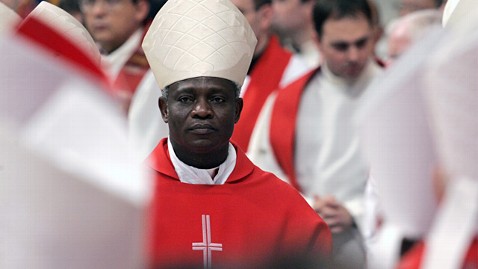Investigators have located charred human remains in the burned-out cabin where they believe suspected cop killer and ex-LAPD officer Christopher Dorner was holed up as the structure burned to the ground, police said.
The human remains were found within the debris of the burned cabin and identification will be attempted through forensic means, the San Bernardino County Sheriff-Coroner Department said in a news release early this morning.
Dorner barricaded himself in the cabin in the San Bernardino Mountains near Big Bear Tuesday afternoon after engaging in a gunfight with police, killing one officer and injuring another, the San Bernardino County Sheriff's Department said.
Cindy Bachman, a spokeswoman for the department, which is the lead agency in the action, said Tuesday night investigators would remain at the site all night.
FULL COVERAGE: Christopher Dorner Manhunt
When Bachman was asked whether police thought Dorner was in the burning cabin, she said, "Right. We believe that the person that barricaded himself inside the cabin engaged in gunfire with our deputies and other law enforcement officers is still inside there, even though the building burned."
Bachman spoke shortly after the Los Angeles Police Department denied earlier reports that a body was found in the cabin, contradicting what law enforcement sources told ABC News and other news organizations.
Police around the cabin told ABC News they saw Dorner enter but never leave the building as it was consumed by flames, creating a billowing column of black smoke seen for miles.
A news conference is scheduled for later today in San Bernardino.
One sheriff's deputy was killed in a shootout with Dorner earlier Tuesday afternoon, believed to be his fourth victim after killing a Riverside police officer and two other people this month, including the daughter of a former police captain, and promising to kill many more in an online manifesto.
PHOTOS: Former LAPD Officer Suspected in Shootings
Carjacking Victim Says Christopher Dorner Was Dressed for Damage Watch Video
Christopher Dorner Manhunt: Inside the Shootout Watch Video
Chris Dorner Manhunt: Fugitive Ex-Cop in Shootout With Police Watch Video
Cops said they heard a single gunshot go off from inside the cabin just as they began to see smoke and fire. Later they heard the sound of more gunshots, which was the sound of ammunition being ignited by the heat of the blaze, law enforcement officials said.
Police did not enter the building, but shot tear gas inside.
One of the largest dragnets in recent history, which led police to follow clues across the West and into Mexico, apparently ended just miles from where Dorner's trail went cold last week.
It all began at 12:20 p.m. PT Tuesday, when a maid working at a local resort called 911, saying she and another worker had been tied up and held hostage by Dorner in a cabin, sources said.
The maid told police she was able to escape, but Dorner had stolen one of their cars, which was identified as a purple Nissan.
The San Bernardino Sheriff's Office and state Fish and Wildlife wardens spotted the stolen vehicle and engaged in a shootout with Dorner.
Officials say Dorner crashed the stolen vehicle and fled on foot only to commandeer Rick Heltebrake's white pickup truck on a nearby road a short time later.
"[Dorner] said, 'I don't want to hurt you, just get out and start walking up the road and take your dog with you.' He was calm. I was calm. I would say I was in fear for my life, there was no panic, he told me what to do and I did it," Heltebrake said.
"He was dressed in all camouflage, had a big assault sniper-type rifle. He had a vest on like a ballistic vest," Heltebrake added.
The white pickup truck bought Dorner extra time because police were still looking for the purple Nissan, California Department of Fish and Wildlife Lt. Patrick Foy told "Good Morning America" today.
"We were looking for a purple color Nissan and all of a sudden this white pickup starts coming by in the opposite direction. That's not the suspect's vehicle that we had been looking for," Foy said.
A warden with the Fish and Wildlife department noticed Dorner driving and the pursuit picked up again, Foy said.
"Ultimately, the officer who was driving that vehicle stopped and pulled out his patrol rifle and engaged probably 15 to 20 shots as Dorner was driving away," Foy said.
Dorner then ran on foot to the cabin in which he barricaded himself and got in a shootout with San Bernardino County sheriff's deputies and other officers who arrived.
The two deputies were wounded in the firefight and airlifted to a nearby hospital, where one died, police said. The second deputy was in surgery and was expected to survive, police said.
Police sealed all the roads into the area, preventing cars from entering the area and searching all of those on the way out. All schools were briefly placed on lockdown.
Believing that Dorner might have been watching reports of the standoff, authorities asked media not to broadcast images of police officers' surrounding the cabin, but sent him a message.
"If he's watching this, the message is: Enough is enough," Los Angeles Police Department spokesman Andy Smith told reporters at a news conference Tuesday. "It's time to turn yourself in. It's time to stop the bloodshed. It's time to let this event and let this incident be over."












